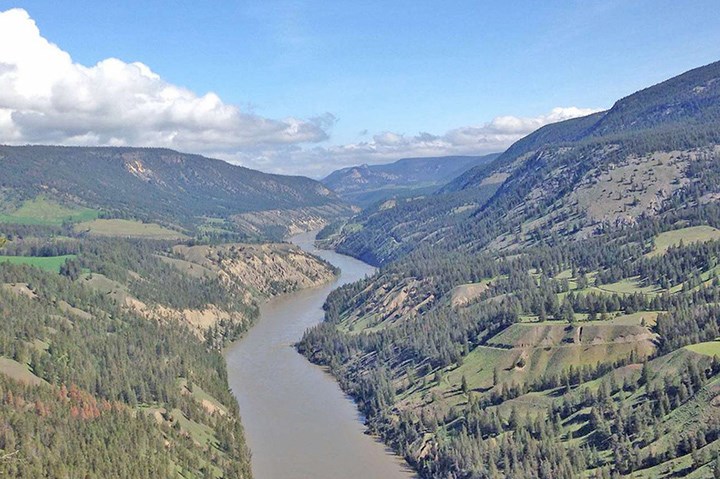A permit authorizing the use of the Fraser River for dilution of mine effluent is being challenged by the Tsilhqot’in National Government (TNG).
The TNG will be participating in a virtual Environmental Appeal Board hearing next week on behalf of the ʔEsdilagh First Nation, which is located along both sides of the Fraser River between Williams Lake and Quesnel.
“The fact that the province of B.C. is permitting Gibraltar Mines Ltd. to use the Fraser River as a dumping ground for its tailings effluent is absolutely appalling,” ʔEsdilagh First Nation Chief Troy Baptiste said in a news release March 8.
The untreated mine effluent is set to be discharged via a pipe into the river four kilometers downstream from the community at Alexandria and near what the nation considers as vital fishing sites at a rate of 285 litres per second beginning April 10.
Brian Battison, Taseko Mines Ltd. vice president of corporate affairs, said Monday, March 8, the mining company had no comment.
Taseko-owned Gibraltar Mines was approved by a director of the B.C. Ministry of Environment Climate Change Strategy to increase discharge effluent from its tailings impoundment directly to the Fraser River from 190 litres per second to 285 litres per second from April 10, 2019, to November 10, 2021.
Under the permit, the discharge must be suspended from Nov. 11 to April 9. Conditions on the discharge are subject to the temperature and flow of the Fraser River.
The B.C. overnment temporarily approved a similar request by Gibraltar Mines to increase its effluent discharge to the Fraser River from Oct. 15, 2015, to Nov. 10 , 2015, and from April 10, 2015 to Nov. 10, 2016.
Baptiste said anything that enters the Fraser River should be of equal or better water quality than the Fraser River itself.
Tl’esqox (Toosey) Chief Francis Laceese said essential food sources First Nations rely on the health of the Fraser River, which flows through many Indigenous communities, including his.
“The continued environmental pressure being put on the Fraser River and our salmon is unacceptable and in direct opposition to our Indigenous laws,” he stated.
“Our waterways, fish and wildlife know no boundaries.”
ʔEsdilagh First Nation adopted a historic law to protect the Fraser River in May, 2020 and recently received support from the BC Assembly of First Nations at the 17th Special Chiefs Assembly in its continued efforts to protect the waters that run through their traditional territories.
A November 2019 technical report by Taseko noted a $15 million water treatment plant would be added in 2021 to treat and discharge excess water currently stored on site.
The virtual hearing begins Monday, March 15, after being delayed last year due to COVID-19.


